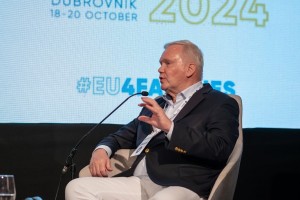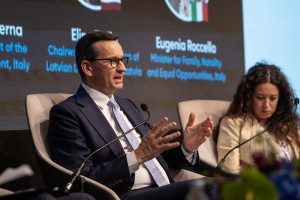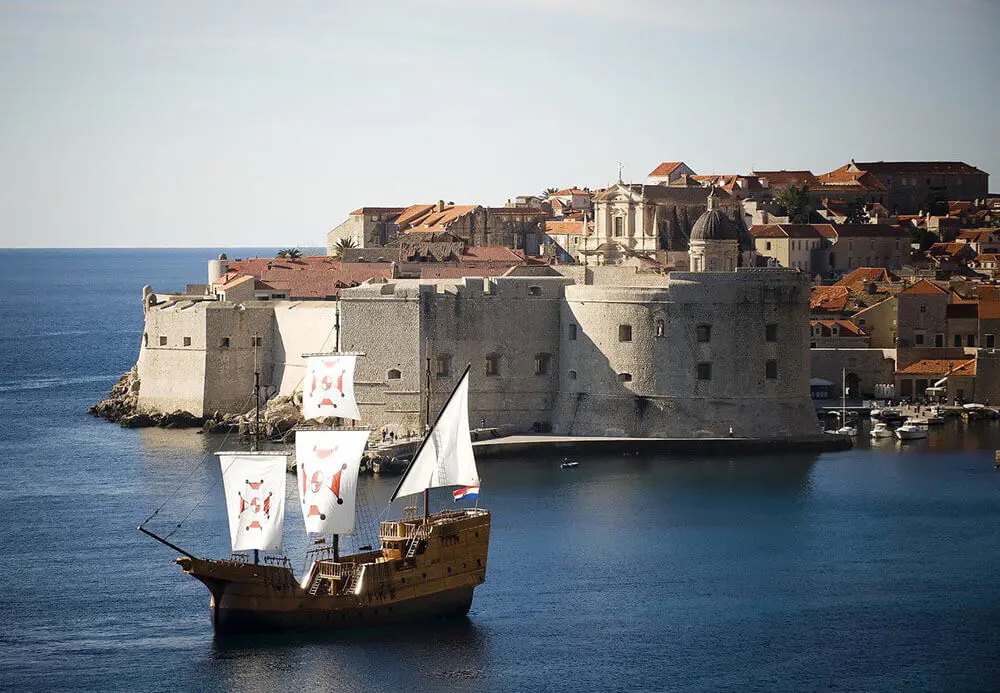 Hannes H. Gissurarson, Professor Emeritus of Politics at the University of Iceland, gave a talk at a family congress of ECR, European Conservatives and Reformists, in Dubrovnik in Croatia on 18 October 2024. He recalled the contrast which Aristotle had in his Rhetoric drawn between youth and old age, where the young were motivated by hope and the old by memories. Youth made innovations, tried to carry out their dreams, whereas old age ensured foreseeability, continuity and stability. Gissurarson observed that not only had the relative number of the old increased in the West with the great increase in life expectancy, but that the old tended to be more active in politics, for example as voters. It was wrong however to view them as a burden on the young. They could contribute much, both as producers and consumers. They could be participants, not only onlookers.
Hannes H. Gissurarson, Professor Emeritus of Politics at the University of Iceland, gave a talk at a family congress of ECR, European Conservatives and Reformists, in Dubrovnik in Croatia on 18 October 2024. He recalled the contrast which Aristotle had in his Rhetoric drawn between youth and old age, where the young were motivated by hope and the old by memories. Youth made innovations, tried to carry out their dreams, whereas old age ensured foreseeability, continuity and stability. Gissurarson observed that not only had the relative number of the old increased in the West with the great increase in life expectancy, but that the old tended to be more active in politics, for example as voters. It was wrong however to view them as a burden on the young. They could contribute much, both as producers and consumers. They could be participants, not only onlookers.
Gissurarson also discussed the theoretical arguments for the family. It was a more efficient consumption unit than the individual and was also a venue for the division of labour between the sexes. Moreover, the family added a time horizon to life in two ways. First, it reached out to the past by parents bringing up their children and teaching them the rules and virtues necessary to survive and succeed, such as diligence, punctuality, politeness, hygiene and so on. Secondly, the family reached out to the future by parents seeking to leave material goods to their children, facilitate their lives. Keynes had said, flippantly, that in the long run ‘we’ would all be dead, but Gissurarson observed that in the long run the children would be alive. First and foremost, however, the family helped individuals to find a meaning in life, a purpose, a sense of belonging. It was crucial that individuals could relate to others, form personal attachments, and the family was the most important such group, while other groups also played a role, such as congregations, private schools, sports clubs, political parties, and all kinds of spontaneous associations and collectives, and last but not least the nation, with its rich and meaningful heritage. Such groups were placed between the individual with his or her right to choose and the state with its monopoly of force. Gissurarson mentioned that in a forthcoming book he was discussing the ideas of the Danish poet, preacher, and politician Nikolaj F. S. Grundtvig who had been a national liberal and eloquently articulated Danish, and Nordic, national identity.
Other speakers at the conference included Mateusz Morawiecki, Poland’s former Prime Minister, Eugenia Roccella, Italian Minister of Family Affairs and Equality, and Ante Šušnjar, Croatian Minister of Economic Affairs, in addition to many members of the European Parliament and of the parliaments of various European countries. The programme of the congress included two excursions, touring the wine district of Konavle south of Dubrovnik, tasting its local wines, and sailing on the Adriatic Sea in a Karaka (depicted below), a replica of the traditional ships built during the Dubrovnik (Ragusa) Republic of 1358–1808.




